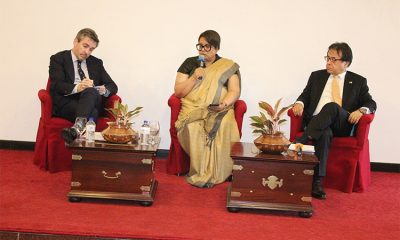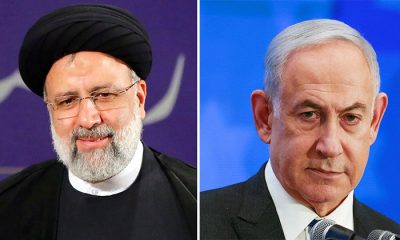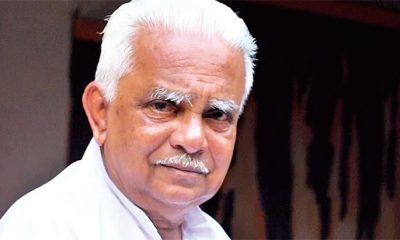Features
Issues in ‘terror’ refusing to go away
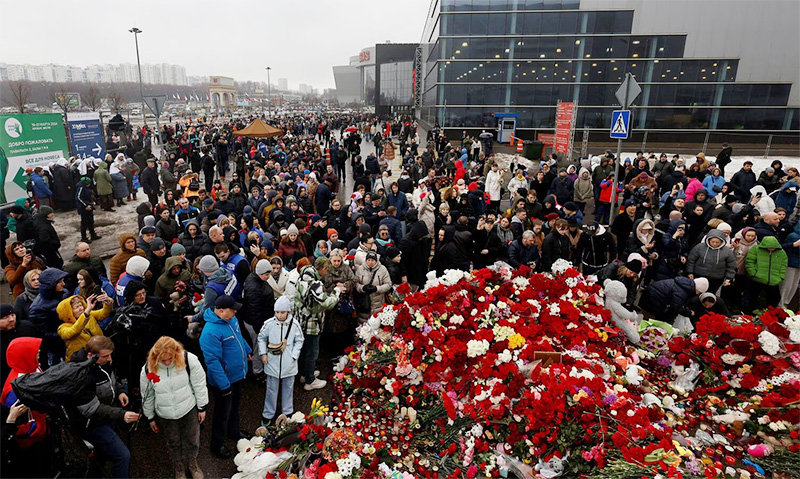
 The hearts of sensitive people the world over are bound to be with the Russian people in this their hour of profound grief. Those 140 or more men, women and children who were brutally killed, besides others who were seriously wounded, at a concert hall in a Moscow suburb recently by rampaging gunmen, were part of the peace-loving ‘silent majority’ of Russia. Their agony is bound to make all righteous hearts bleed for them in empathy.
The hearts of sensitive people the world over are bound to be with the Russian people in this their hour of profound grief. Those 140 or more men, women and children who were brutally killed, besides others who were seriously wounded, at a concert hall in a Moscow suburb recently by rampaging gunmen, were part of the peace-loving ‘silent majority’ of Russia. Their agony is bound to make all righteous hearts bleed for them in empathy.
The mindless act of terror will stand condemned by all right-thinking people and it would be correct for civilian publics and governments the world over to increasingly and unanimously decry the maniacal burst of brute force and stand in solidarity with the Russian people.
This is a time of formidable challenge for the Putin regime. The domestic and international issues growing out of the tragedy are numerous and wide-ranging and the impartial analyst would be right in taking up the position that ‘course correction’ by the regime is needed in a number of areas. To begin with, the question needs to be asked whether President Putin did right by stating unreservedly that ‘radical Islamists’ were behind the attack.
It could very well have been that the attackers were driven by some sort of fanatical religious zeal but considering the harm it could do to the religious susceptibilities of peace-loving followers of Islam, the term ‘Islamists’ could best have been avoided by the Russian President. Former US President Donald Trump resorted to phrases, such as, ‘Islamist terrorists’ quite often and the practice, as could be seen, did not do the world any good.
The likes of the Russian President ought to know by now that indiscreet and controversial labelling of people has the effect of alienating them and eventually radicalizing them against governments and polities.
However, what the world needs now is reconciliation and bridge-building among communities. Putin’s words could result in Muslims further distancing themselves from the wider Russian public. The consequences of such distancing could be distressing for the Russian people.
Such labelling could also have grave implications on the foreign policy front for the Putin regime. If the ISIS was indeed the mastermind behind the concert hall carnage, Putin’s pronouncement could only further antagonize ISIS and other such outfits that have been waging wars of attrition against the Russian state in the Middle Eastern theatre in particular.
If some intelligence agencies are apprehensive about more terror attacks inside Russia they could very well be correct because the Putin regime, even at this juncture, is not perceiving the advisability of following a reconciliatory course in its foreign relations. The Putin regime is obliged to halt in its tracks and take cognizance of the possible fallout on the Russian people of its policy indiscretions.
Interestingly, intelligence failures are currently occurring in what seem to be the most security conscious states of the world. There was the case of Israel in October last year and now Russia. If the Russian state thinks that rule in perpetuity by President Putin could bring it enduring stability, the recent bloodbath has proved it wrong.
Apparently, national security could not be the sole key to good governance. While national security is indispensable for effective governance, good governance is also a coming together of a number of major elements, such as, redistributive justice and cordial coexistence among communities and religions. A policy of attaching priority to national security could enable repressive governments to remain in power for some time but it would not help the people concerned much.
On the question of intelligence failures, the Putin administration seems to have attached too great an importance to ‘national pride’ and not taken into consideration intelligence information coming from the US. Going by current reports, the Russian security establishment had been warned of an impending ISIS terror attack by its counterparts in the US but had failed to act on the warning. If this is true, the security of the Russian people has not weighed heavily with the Putin regime. Well-wishers of the Russian people are likely regret such neglect on the part of the regime.
Given the complexities of the issue of ‘terror’, there is unlikely to be an international consensus on its definition and on ways of resolving it any time soon but states could cooperate for the time being on managing the conundrum effectively. Accordingly, Russia could cooperate on this basis with the US and vice versa, for example. Information-sharing should not be fought shy of, besides other ways of cooperation.
Right now, the world has no choice but to collaborate on managing ‘terror’ until long term solutions are found to it. What needs to weigh on governments’ minds is the fact that ordinary publics pay a prohibitive price for their blunders in handling ‘terror’.
This is a crucial point that the political and security establishments in small Sri Lanka as well need to keep in mind, particularly in relation to the Easter Sunday bombings. In the latter case, governmental blundering and negligence of duty at the highest levels of the state brought catastrophic consequences for the people. To make matters worse, the wrong-doers in this crisis are yet to be brought to justice.
With the allegation that Ukraine had collaborated with the perpetrators of the concert hall carnage, President Putin seems to be in an attempt to deflect accountability for the blood-letting from his regime to an external quarter. This allegation, though, remains to be proved. Moreover, the fact remains that a massive intelligence failure on the part of the security agencies of the state brought about the devastation.
These attempts to point to an external source for the current tribulations of the government should also be seen as part of the Putin regime’s strategy to remain powerful at home. The strategy has been tried out time and again by repressive governments that are apprehensive about their power ebbing away from them in the wake of internal crises. The ploy enables political strongmen to resoundingly rally the people behind them, while giving the impression that they are remaining strong and in total control of the state.
If civilized norms are to be given a chance to prosper in international relations, democratic development needs to be prioritized by governments and the world community under the leadership of the UN. ‘Terror’ has its roots in mainly socio- economic deprivations and the world has no choice but to strive towards ending them.
Repressive rule, however, is no guarantor of social and economic equity and it is only democratic dispensations that aim at socio-economic equity or democratic development that could bring about this state of affairs to at least a degree.
Features
Trade preferences to support post-Ditwah reconstruction

The manner in which the government succeeded in mobilising support from the international community, immediately after the devastating impact of Cyclone Ditwah, may have surprised many people of this country, particularly because our Opposition politicians were ridiculing our “inexperienced” government, in the recent past, for its inability to deal with the international community effectively. However, by now it is evident that the government, with the assistance of the international community and local nongovernmental actors, like major media organisations, has successfully managed the recovery efforts. So, let me begin by thanking them for what they have done so far.
Yet, some may argue that it is not difficult to mobilise the support for recovery efforts from the international community, immediately after any major disaster, and the real challenge is to sustain that support through the next few weeks, months and years. Because the recovery process, more specifically the post-recovery reconstruction process, requires long-term support. So, the government agencies should start immediately to focus on, in addition to initial disaster relief, a longer-term strategy for reconstruction. This is important because in a few weeks’ time, the focus of the global community may shift elsewhere … to another crisis in another corner of the world. Before that happens, the government should take initiatives to get the support from development partners on appropriate policy measures, including exceptional trade preferences, to help Sri Lanka in the recovery efforts through the medium and the long term.
Use of Trade Preferences to support recovery and reconstruction
In the past, the United States and the European Union used exceptional enhanced trade preferences as part of the assistance packages when countries were devastated by natural disasters, similar to Cyclone Ditwah. For example:
- After the devastating floods in Pakistan, in July 2010, the EU granted temporary, exceptional trade preferences to Pakistan (autonomous trade preferences) to aid economic recovery. This measure was a de facto waiver on the standard EU GSP (Generalised Scheme of Preferences) rules. The preferences, which were proposed in October 2010 and were applied until the end of 2013, effectively suspended import duties on 75 types of goods, including textiles and apparel items. The available studies on this waiver indicate that though a significant export hike occurred within a few months after the waiver became effective it did not significantly depress exports by competing countries. Subsequently, Pakistan was granted GSP+ status in 2014.
- Similarly, after the 2015 earthquakes in Nepal, the United States supported Nepal through an extension of unilateral additional preferences, the Nepal Trade Preferences Programme (NTPP). This was a 10-year initiative to grant duty-free access for up to 77 specific Nepali products to aid economic recovery after the 2015 earthquakes. This was also a de facto waiver on the standard US GSP rules.
- Earlier, after Hurricanes Mitch and Georges caused massive devastation across the Caribbean Basin nations, in 1998, severely impacting their economies, the United States proposed a long-term strategy for rebuilding the region that focused on trade enhancement. This resulted in the establishment of the US Caribbean Basin Trade Partnership Act (CBTPA), which was signed into law on 05 October, 2000, as Title II of the Trade and Development Act of 2000. This was a more comprehensive facility than those which were granted to Pakistan and Nepal.

What type of concession should Sri Lanka request from our development partners?
Given these precedents, it is appropriate for Sri Lanka to seek specific trade concessions from the European Union and the United States.
In the European Union, Sri Lanka already benefits from the GSP+ scheme. Under this arrangement Sri Lanka’s exports (theoretically) receive duty-free access into the EU markets. However, in 2023, Sri Lanka’s preference utilisation rate, that is, the ratio of preferential imports to GSP+ eligible imports, stood at 59%. This was significantly below the average utilisation of other GSP beneficiary countries. For example, in 2023, preference utilisation rates for Bangladesh and Pakistan were 90% and 88%, respectively. The main reason for the low utilisation rate of GSP by Sri Lanka is the very strict Rules of Origin requirements for the apparel exports from Sri Lanka. For example, to get GSP benefits, a woven garment from Sri Lanka must be made from fabric that itself had undergone a transformation from yarn to fabric in Sri Lanka or in another qualifying country. However, a similar garment from Bangladesh only requires a single-stage processing (that is, fabric to garment) qualifies for GSP. As a result, less than half of Sri Lanka’s apparel exports to the EU were ineligible for the preferences in 2023.
Sri Lanka should request a relaxation of this strict rule of origin to help economic recovery. As such a concession only covers GSP Rules of Origin only it would impact multilateral trade rules and would not require WTO approval. Hence could be granted immediately by the EU.
United States
Sri Lanka should submit a request to the United States for (a) temporary suspension of the recently introduced 20% additional ad valorem duty and (b) for a programme similar to the Nepal Trade Preferences Programme (NTPP), but designed specifically for Sri Lanka’s needs. As NTPP didn’t require WTO approval, similar concessions also can be granted without difficulty.
Similarly, country-specific requests should be carefully designed and submitted to Japan and other major trading partners.
(The writer is a retired public servant and can be reached at senadhiragomi@gmail.com)
by Gomi Senadhira
Features
Lasting power and beauty of words
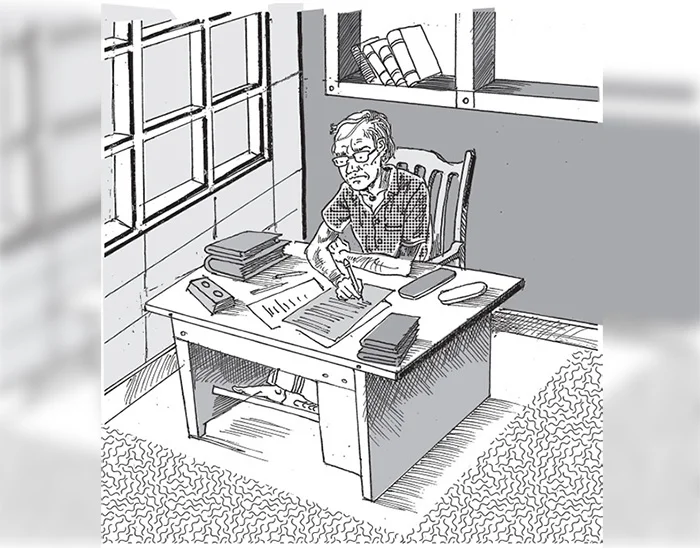
Novelists, poets, short story writers, lyricists, politicians and columnists use words for different purposes. While some of them use words to inform and elevate us, others use them to bolster their ego. If there was no such thing called words, we cannot even imagine what will happen to us. Whether you like it or not everything rests on words. If the Penal Code does not define a crime and prescribe a punishment, judges will not be able to convict criminals. Even the Constitution of our country is a printed document.
A mother’s lullaby contains snatches of sweet and healing words. The effect is immediate. The baby falls asleep within seconds. A lover’s soft and alluring words go right into his or her beloved. An army commander’s words encourage soldiers to go forward without fear. The British wartime Prime Minister Winston Churchill’s words still ring in our ears: “… we shall defend our Island, whatever the cost may be, we shall fight on the beaches, we shall fight on the landing grounds, we shall fight in the fields and in the streets, we shall fight in the hills; we shall never surrender …”
Writers wax eloquent on love. English novelist John Galsworthy wrote: “Love is no hot-house flower, but a wild plant, born of a wet night, born of an hour of sunshine; sprung from wild seed, blown along the road by a wild wind. A wild plant that, when it blooms by chance within the hedge of our gardens, we call a flower; and when it blooms outside we call a weed; but flower or weed, whose scent and colour are always wild.” While living in a world dominated by technology, we often hear a bunch of words that is colourless and often cut to verbal ribbons – “How R U” or “Luv U.” Such words seem to squeeze the life out of language.
Changing medium
Language is a constantly changing medium. New words and forms arrive and old ones die out. Whoever thought that the following Sinhala words would find a place in the Oxford English Dictionary? “Asweddumize, Avurudu, Baila, Kiribath, Kottu Roti, Mallung, Osari, Papare, Walawwa and Watalappan.” With all such borrowed words the English language is expanding and remains beautiful. The language helps us to express subtle ideas clearly and convincingly.
You are judged by the words you use. If you constantly use meaningless little phrases, you will be considered a worthless person. When you read a well-written piece of writing you will note how words jump and laugh on the paper or screen. Some of them wag their tails while others stand back like shy village belles. However, they serve a useful purpose. Words help us to write essays, poems, short stories and novels. If not for the beauty of the language, nobody will read what you write.
If you look at the words meaningfully, you will see some of them tap dancing while others stand to rigid attention. Big or small, all the words you pen form part of the action or part of the narrative. The words you write make your writing readable and exciting. That is why we read our favourite authors again and again.
Editorials
If a marriage is to succeed, partners should respect and love each other. Similarly, if you love words, they will help you to use them intelligently and forcefully. A recent survey in the United States has revealed that only eight per cent of people read the editorial. This is because most editorials are not readable. However, there are some editorials which compel us to read them. Some readers collect such editorials to be read later.
Only a lover of words would notice how some words run smoothly without making a noise. Other words appear to be dancing on the floor. Some words of certain writers are soothing while others set your blood pounding. There is a young monk who is preaching using simple words very effectively. He has a large following of young people addicted to drugs. After listening to his preaching, most of them have given up using illegal drugs. The message is loud and clear. If there is no demand for drugs, nobody will smuggle them into the country.
Some politicians use words so rounded at the edges and softened by wear that they are no longer interesting. The sounds they make are meaningless and listeners get more and more confused. Their expressions are full of expletives the meaning of which is often soiled with careless use of words.
Weather-making
Some words, whether written or spoken, stick like superglue. You will never forget them. William Vergara in his short essay on weather-making says, “Cloud-seeding has touched off one of the most baffling controversies in meteorological history. It has been blamed for or credited with practically all kinds of weather. Some scientists claim seeding can produce floods and hail. Others insist it creates droughts and dissipates clouds. Still others staunchly maintain it has no effect at all. The battle is far from over, but at last one clear conclusion is beginning to emerge: man can change the weather, and he is getting better at it.”
There are words that nurse the ego and heal the heart. The following short paragraph is a good example. S. Radhakrishnan says, “In every religion today we have small minorities who see beyond the horizon of their particular faith, not through religious fellowship is possible, not through the imposition of any one way on the whole but through an all-inclusive recognition that we are all searchers for the truth, pilgrims on the road, that we all aim at the same ethical and spiritual standard.”
There are some words joined together in common phrases. They are so beautiful that they elevate the human race. In the phrase ‘beyond a shadow of doubt’, ‘a shadow’ connotes a dark area covering light. ‘A doubt’ refers to hesitancy in belief. We use such phrases blithely because they are exquisitely beautiful in their structure. The English language is a repository of such miracles of expression that lead to deeper understanding or emphasis.
Social media
Social media use words powerfully. Sometimes they invent new words. Through the social media you can reach millions of viewers without the intervention of the government. Their opinion can stop wars and destroy tyrants. If you use the right words, you can even eliminate poverty to a great extent.
The choice of using powerful words is yours. However, before opening your mouth, tap the computer, unclip a pen, write a lyric or poem, think twice of the effect of your writing. When you talk with a purpose or write with pleasure, you enrich listeners and readers with your marvellous language skills. If you have a command of the language, you will put across your point of view that counts. Always try to find the right words and change the world for a better place for us to live.
By R. S. Karunaratne
karunaratners@gmail.com
Features
Why Sri Lanka Still Has No Doppler Radar – and Who Should Be Held Accountable

Eighteen Years of Delay:
Cyclone Ditwah has come and gone, leaving a trail of extensive damage to the country’s infrastructure, including buildings, roads, bridges, and 70% of the railway network. Thousands of hectares of farming land have been destroyed. Last but not least, nearly 1,000 people have lost their lives, and more than two million people have been displaced. The visuals uploaded to social media platforms graphically convey the widespread destruction Cyclone Ditwah has caused in our country.
The purpose of my article is to highlight, for the benefit of readers and the general public, how a project to establish a Doppler Weather Radar system, conceived in 2007, remains incomplete after 18 years. Despite multiple governments, shifting national priorities, and repeated natural disasters, the project remains incomplete.
Over the years, the National Audit Office, the Committee on Public Accounts (COPA), and several print and electronic media outlets have highlighted this failure. The last was an excellent five-minute broadcast by Maharaja Television Network on their News First broadcast in October 2024 under a series “What Happened to Sri Lanka”
The Agreement Between the Government of Sri Lanka and the World Meteorological Organisation in 2007.
The first formal attempt to establish a Doppler Radar system dates back to a Trust Fund agreement signed on 24 May 2007 between the Government of Sri Lanka (GoSL) and the World Meteorological Organisation (WMO). This agreement intended to modernize Sri Lanka’s meteorological infrastructure and bring the country on par with global early-warning standards.
The World Meteorological Organisation (WMO) is a specialized agency of the United Nations established on March 23, 1950. There are 193 member countries of the WMO, including Sri Lanka. Its primary role is to promote the establishment of a worldwide meteorological observation system and to serve as the authoritative voice on the state and behaviour of the Earth’s atmosphere, its interaction with the oceans, and the resulting climate and water resources.
According to the 2018 Performance Audit Report compiled by the National Audit Office, the GoSL entered into a trust fund agreement with the WMO to install a Doppler Radar System. The report states that USD 2,884,274 was deposited into the WMO bank account in Geneva, from which the Department of Metrology received USD 95,108 and an additional USD 113,046 in deposit interest. There is no mention as to who actually provided the funds. Based on available information, WMO does not fund projects of this magnitude.
The WMO was responsible for procuring the radar equipment, which it awarded on 18th June 2009 to an American company for USD 1,681,017. According to the audit report, a copy of the purchase contract was not available.
Monitoring the agreement’s implementation was assigned to the Ministry of Disaster Management, a signatory to the trust fund agreement. The audit report details the members of the steering committee appointed by designation to oversee the project. It consisted of personnel from the Ministry of Disaster Management, the Departments of Metrology, National Budget, External Resources and the Disaster Management Centre.
The Audit Report highlights failures in the core responsibilities that can be summarized as follows:
· Procurement irregularities—including flawed tender processes and inadequate technical evaluations.
· Poor site selection
—proposed radar sites did not meet elevation or clearance requirements.
· Civil works delays
—towers were incomplete or structurally unsuitable.
· Equipment left unused
—in some cases for years, exposing sensitive components to deterioration.
· Lack of inter-agency coordination
—between the Meteorology Department, Disaster Management Centre, and line ministries.
Some of the mistakes highlighted are incomprehensible. There is a mention that no soil test was carried out before the commencement of the construction of the tower. This led to construction halting after poor soil conditions were identified, requiring a shift of 10 to 15 meters from the original site. This resulted in further delays and cost overruns.
The equipment supplier had identified that construction work undertaken by a local contractor was not of acceptable quality for housing sensitive electronic equipment. No action had been taken to rectify these deficiencies. The audit report states, “It was observed that the delay in constructing the tower and the lack of proper quality were one of the main reasons for the failure of the project”.
In October 2012, when the supplier commenced installation, the work was soon abandoned after the vehicle carrying the heavy crane required to lift the radar equipment crashed down the mountain. The next attempt was made in October 2013, one year later. Although the equipment was installed, the system could not be operationalised because electronic connectivity was not provided (as stated in the audit report).
In 2015, following a UNOPS (United Nations Office for Project Services) inspection, it was determined that the equipment needed to be returned to the supplier because some sensitive electronic devices had been damaged due to long-term disuse, and a further 1.5 years had elapsed by 2017, when the equipment was finally returned to the supplier. In March 2018, the estimated repair cost was USD 1,095,935, which was deemed excessive, and the project was abandoned.
COPA proceedings
The Committee on Public Accounts (COPA) discussed the radar project on August 10, 2023, and several press reports state that the GOSL incurred a loss of Rs. 78 million due to the project’s failure. This, I believe, is the cost of constructing the Tower. It is mentioned that Rs. 402 million had been spent on the radar system, of which Rs. 323 million was drawn from the trust fund established with WMO. It was also highlighted that approximately Rs. 8 million worth of equipment had been stolen and that the Police and the Bribery and Corruption Commission were investigating the matter.
JICA support and project stagnation
Despite the project’s failure with WMO, the Japan International Cooperation Agency (JICA) entered into an agreement with GOSL on June 30, 2017 to install two Doppler Radar Systems in Puttalam and Pottuvil. JICA has pledged 2.5 billion Japanese yen (LKR 3.4 billion at the time) as a grant. It was envisaged that the project would be completed in 2021.
Once again, the perennial delays that afflict the GOSL and bureaucracy have resulted in the groundbreaking ceremony being held only in December 2024. The delay is attributed to the COVID-19 pandemic and Sri Lanka’s economic crisis.
The seven-year delay between the signing of the agreement and project commencement has led to significant cost increases, forcing JICA to limit the project to installing only one Doppler Radar system in Puttalam.
Impact of the missing radar during Ditwah
As I am not a meteorologist and do not wish to make a judgment on this, I have decided to include the statement issued by JICA after the groundbreaking ceremony on December 24, 2024.
“In partnership with the Department of Meteorology (DoM), JICA is spearheading the establishment of the Doppler Weather Radar Network in the Puttalam district, which can realize accurate weather observation and weather prediction based on the collected data by the radar. This initiative is a significant step in strengthening Sri Lanka’s improving its climate resilience including not only reducing risks of floods, landslides, and drought but also agriculture and fishery“.
Based on online research, a Doppler Weather Radar system is designed to observe weather systems in real time. While the technical details are complex, the system essentially provides localized, uptotheminute information on rainfall patterns, storm movements, and approaching severe weather. Countries worldwide rely on such systems to issue timely alerts for monsoons, tropical depressions, and cyclones. It is reported that India has invested in 30 Doppler radar systems, which have helped minimize the loss of life.
Without radar, Sri Lanka must rely primarily on satellite imagery and foreign meteorological centres, which cannot capture the finescale, rapidly changing weather patterns that often cause localized disasters here.
The general consensus is that, while no single system can prevent natural disasters, an operational Doppler Radar almost certainly would have strengthened Sri Lanka’s preparedness and reduced the extent of damage and loss.
Conclusion
Sri Lanka’s inability to commission a Doppler Radar system, despite nearly two decades of attempts, represents one of the most significant governance failures in the country’s disastermanagement history.
Audit findings, parliamentary oversight proceedings, and donor records all confirm the same troubling truth: Sri Lanka has spent public money, signed international agreements, received foreign assistance, and still has no operational radar. This raises a critical question: should those responsible for this prolonged failure be held legally accountable?
Now may not be the time to determine the extent to which the current government and bureaucrats failed the people. I believe an independent commission comprising foreign experts in disaster management from India and Japan should be appointed, maybe in six months, to identify failures in managing Cyclone Ditwah.
However, those who governed the country from 2007 to 2024 should be held accountable for their failures, and legal action should be pursued against the politicians and bureaucrats responsible for disaster management for their failure to implement the 2007 project with the WMO successfully.
Sri Lanka cannot afford another 18 years of delay. The time for action, transparency, and responsibility has arrived.
(The views and opinions expressed in this article are solely those of the author and do not necessarily reflect the policy or position of any organization or institution with which the author is affiliated).
By Sanjeewa Jayaweera
-

 Features5 days ago
Features5 days agoFinally, Mahinda Yapa sets the record straight
-

 News6 days ago
News6 days agoCyclone Ditwah leaves Sri Lanka’s biodiversity in ruins: Top scientist warns of unseen ecological disaster
-

 Features5 days ago
Features5 days agoHandunnetti and Colonial Shackles of English in Sri Lanka
-

 Business4 days ago
Business4 days agoCabinet approves establishment of two 50 MW wind power stations in Mullikulum, Mannar region
-
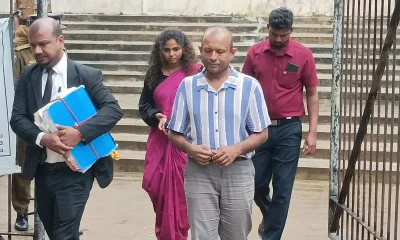
 News4 days ago
News4 days agoGota ordered to give court evidence of life threats
-

 Features6 days ago
Features6 days agoAn awakening: Revisiting education policy after Cyclone Ditwah
-

 Features4 days ago
Features4 days agoCliff and Hank recreate golden era of ‘The Young Ones’
-

 Opinion5 days ago
Opinion5 days agoA national post-cyclone reflection period?








